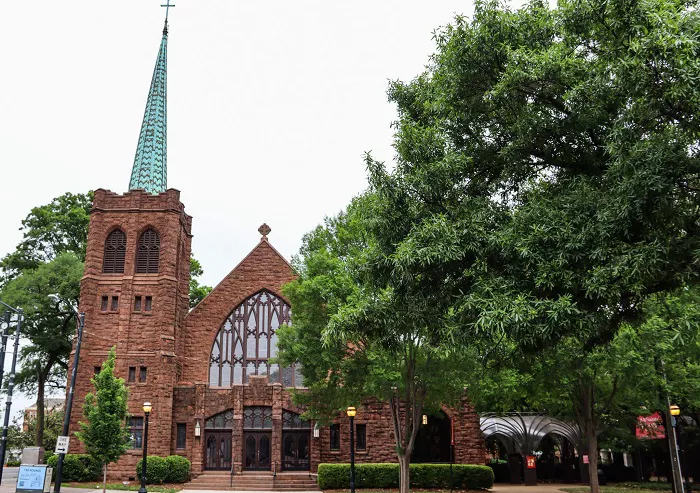Refine LA, a sustainable fashion club at UCLA, will present its highly anticipated “Decomposition” fashion show on May 9 at 8 p.m. at the Fowler Museum amphitheater. The event will feature a three-part show inspired by the stages of life: life, decomposition, and regrowth. According to event director Alina Beaman, a third-year statistics and data science student, the show will highlight a variety of designs inspired by these themes.
Mindy Luo, a fourth-year art history and cognitive science student and president of Refine LA, explained that the theme was partly influenced by the recent Los Angeles County wildfires. “During the fires, we witnessed widespread destruction, but now we are seeing the renewal that comes with spring,” Luo said. “Everything ties together, as circular fashion reflects the cycle of life.”
Cece Yao, a third-year cognitive science student and product director of Refine LA, emphasized that all the clothing and materials featured in the show have been sourced secondhand. The designs also incorporate natural elements such as branches, flower petals, and fungi, elements rarely seen in traditional fashion shows. “Decomposition is a natural, circular process,” Yao noted. “Just as decomposing materials can be repurposed into something new, so can clothing at the end of its lifecycle.”
The venue, nestled in nature, also plays a significant role in the club’s mission, according to Luo. Refine LA typically hosts its shows in outdoor settings to symbolize the harmony between fashion and the natural world. This setting aims to create a meaningful experience for attendees, inspiring them to consider more sustainable practices in their own lives.
Beaman added that the club’s goals extend beyond promoting secondhand shopping. The group also advocates for reduced consumption and the repurposing of items already in people’s wardrobes. Having been involved in ethical fashion initiatives since high school, Beaman shared her concerns about “greenwashing” — a tactic where brands falsely claim sustainability to capitalize on consumers’ eco-conscious values. Refine LA aims to shift the focus away from fast fashion and back to personal wardrobes, encouraging people to reduce consumption overall.
“We often want more than we need,” Beaman said. “If people could reduce consumption, even through thrifting, it would be beneficial for their mental well-being as well.”
Luo hopes the fashion show will inspire attendees to rethink their purchasing habits. A pamphlet distributed at the event will educate guests about the environmental impact of excessive clothing consumption, such as the vast amounts of clothing that end up in landfills or are exported to other countries. “People often express creativity by buying things, but they could channel that energy into making their own clothes or altering existing garments,” Luo said. “It’s more productive for society.”
In addition to its fashion shows, Refine LA organizes workshops on upcycling, sewing, and repurposing clothing, which are open to both members and the broader community. These workshops, typically held at the UCLA MakerSpace, allow participants to create everything from key chains to full fashion show designs.
Refine LA also produces an annual zine that highlights sustainable businesses in Los Angeles and hosts flea markets on Bruin Walk, where all items are priced at $10 or less. These initiatives aim to make sustainable fashion accessible to all, regardless of budget.
“Sustainability isn’t a limitation on creativity; it’s a source of it,” said Yao. “Our creative process is deeply inspired by nature, and we take much of our inspiration from the earth itself.”
By blending fashion with sustainability, Refine LA continues to challenge conventional fashion practices and promote eco-conscious alternatives.


